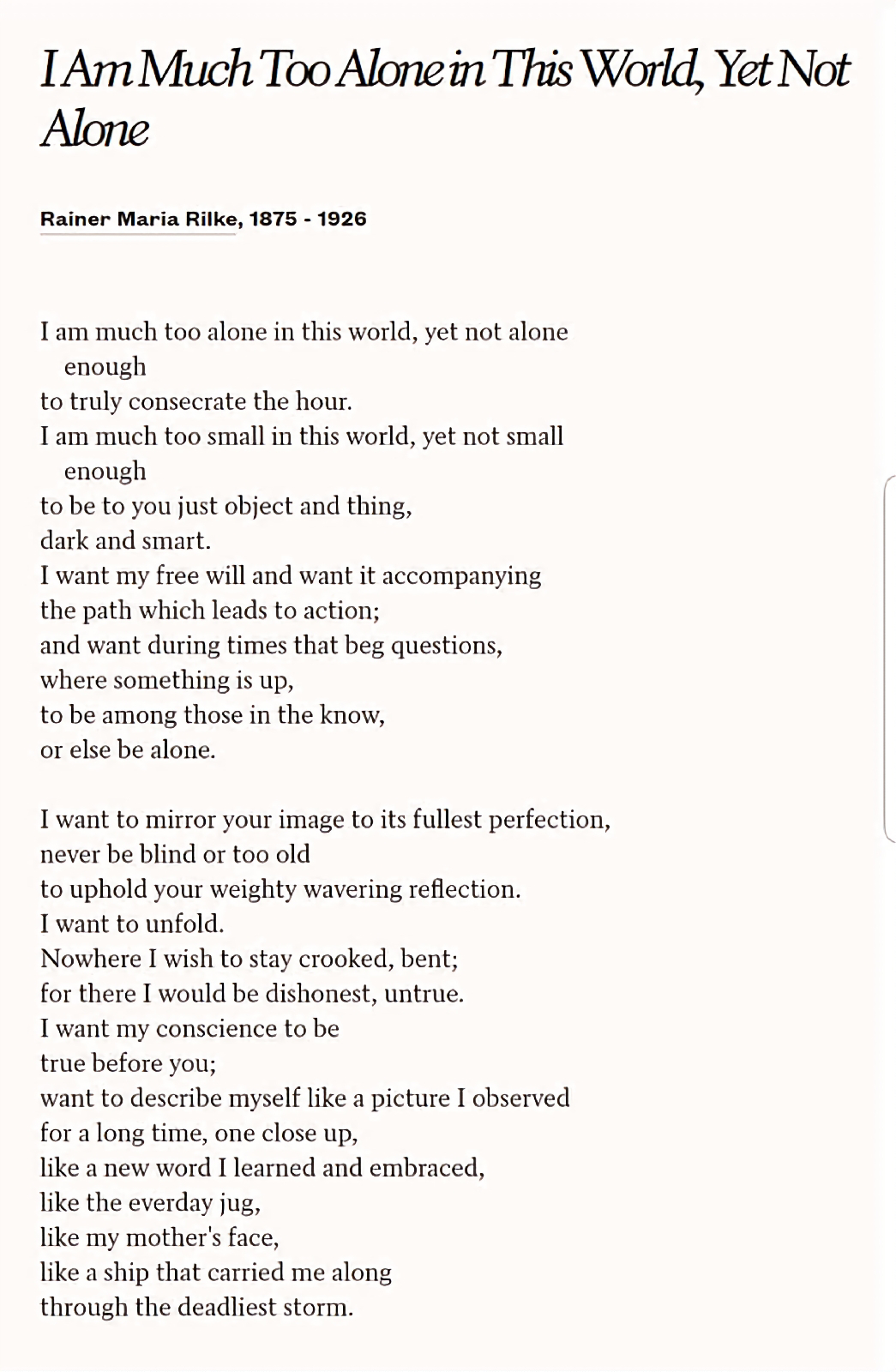"I Am Much Too Alone in This World, Yet Not Alone" by Rainer Maria Rilke
The poem "I Am Much Too Alone in This World, Yet Not Alone" by Rainer Maria Rilke is a poignant meditation on solitude, self-reflection, and the human condition. Rilke, with his characteristic depth, captures the paradox of feeling profoundly isolated in a world teeming with life. He speaks to the heart of the human experience—the longing for connection, the recognition of one's own limitations, and the desire for self-actualization.
Rilke begins by speaking to the sense of being alone in a vast world, a sentiment that resonates with anyone who has ever felt disconnected from the people and environment around them. Yet, he qualifies this feeling with "yet not alone enough," suggesting a yearning for a deeper solitude that might allow for personal growth and reflection. This solitude is not mere isolation but a sacred space where one can "truly consecrate the hour."
In his solitude, Rilke confronts the duality of his existence: feeling too small in the grand scheme of things yet not small enough to shirk the burdens and responsibilities of life. He wrestles with the nature of free will, desiring it not just for the sake of autonomy but also as a companion on the path to meaningful action. The poet's introspection leads him to probe life's pressing questions and to seek truth, preferring the company of the knowledgeable or the solace of his own company to ignorance.
Rilke's desire to "mirror your image to its fullest perfection" speaks to an aspiration to see and reflect the best in others, to support them in realizing their potential. Yet, he is aware of the transient nature of life, the inevitability of change, and the futility of resistance. This understanding prompts a desire to "unfold," to live authentically and without pretense.
The poem concludes with a powerful image of self-honesty and authenticity. Rilke wishes to describe himself as honestly as a long-observed picture, suggesting a clarity of self-perception that is both intimate and detailed. The everyday objects he compares himself to—a jug, his mother's face—symbolize familiarity and warmth, while the ship navigating the deadliest storm represents resilience in the face of life's most challenging moments.
Rilke's work is a timeless reminder of the complexity of our internal lives. The poem suggests that within the solitude we fear, there lies the potential for profound self-discovery and the realization of our truest selves. It is in embracing our aloneness that we may come to find not loneliness, but a deep connection to the world and our place within it.


